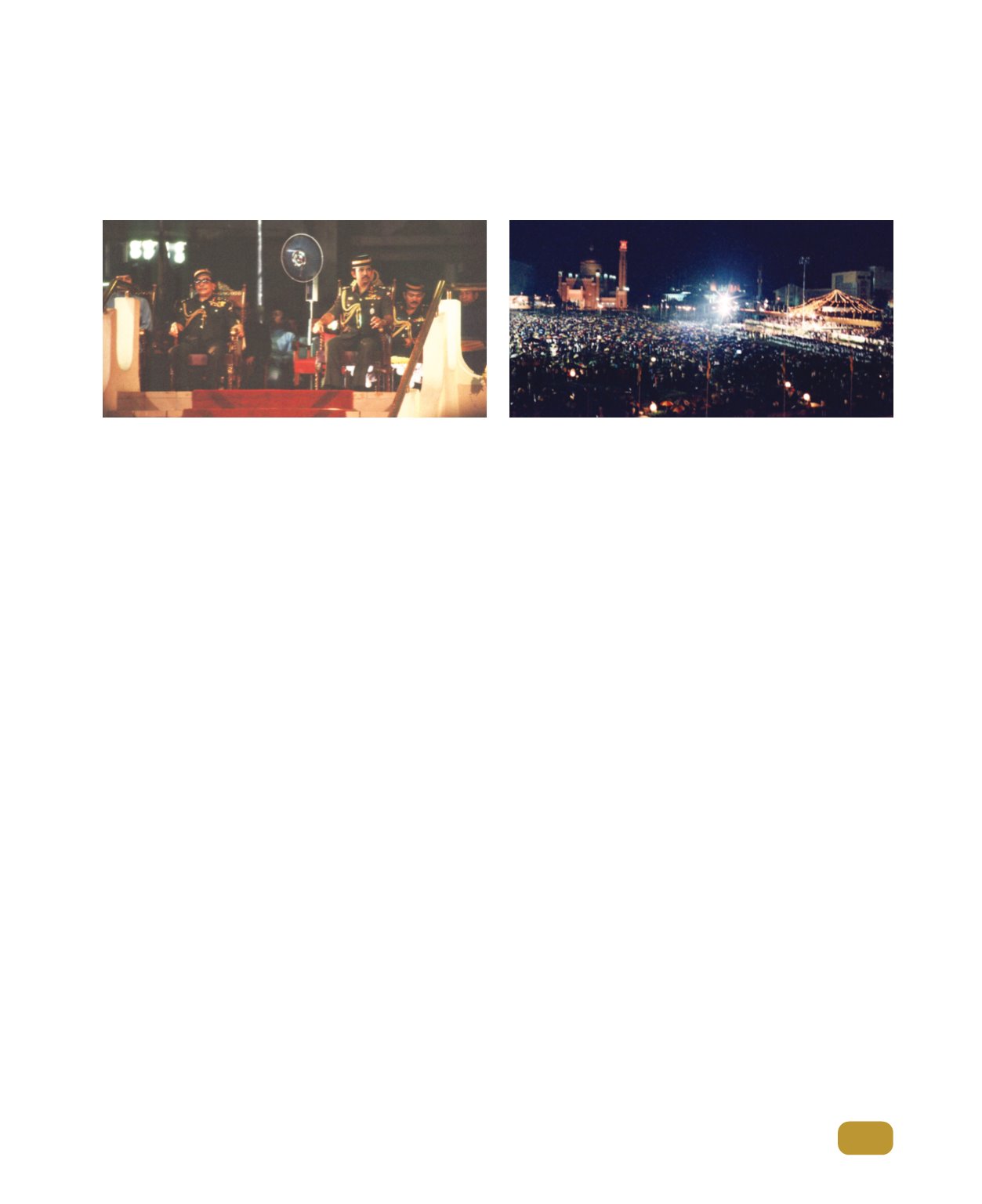

227
VISITOR INFORMATION
Historical findings suggest the Brunei
kingdom began more than 1,500
years ago and was referred to as
Puni
or
Puli
in ancient Chinese texts.
In the 14
th
Century, the country’s first
ruler Awang Alak Betatar embraced
the Islamic faith and changed his
name to Sultan Muhammad Shah. As
a territory administered by a Muslim
government,
subsequent
Brunei
sovereigns became known as Sultans.
The country’s Golden Age commenced
in
the
16
th
Century,
reaching
eminence when Brunei’s power was
recognised throughout Borneo, the
Sulu Archipelago and the Southern
Philippines. The Golden Age coincided
with the ruleof SultanBolkiahandSultan
Hassan. During this period, both rulers
were able to expand Brunei’s territory
and extend its cultural influence. The
two Sultans also pioneered Brunei’s
Royal Court to its full grandeur and
brilliance, rivalling other monarchies.
However, by the 19
th
Century, theBrunei
Empire had been whittled away by
wars, piracy and the colonial expansion
of European powers. Following a
treaty with Great Britain, Brunei in
1888 became a British protected state.
During the reign of Sultan Hashim
Jalilul Alam, Brunei was divided into
two separate enclaves: Brunei-Muara,
Tutong and Belait districts on one side
and Temburong district on the other as
a result of the annexation of Limbang
by Rajah Charles Brooke. In 1906, the
Residential System was established
in Brunei, and a British Resident was
nominated as a representative of the
British government to advise the sultan
in all matters except Malay customs,
traditions and Islamic religion.
Following the aftermath of the
Second World War, Brunei gradually
began to recover and made a major
breakthrough during the reign of
Al-Marhum Sultan Haji Omar ‘Ali
Saifuddien Sa’adul Khairi Waddien
ibni Al-Marhum Sultan Muhammad
Jamalul Alamwhich coincided with the
country’s first commercial discovery of
oil in 1929. Brunei underwent a massive
economic growth and transformed
into a thriving, modern state over the
decades as the oil and gas industry
continued to grow.
In 1967, His Majesty Sultan Haji Hassanal
Bolkiah Mu’izzaddin Waddaulah ibni
Al-Marhum Sultan Haji Omar ‘Ali
Saifuddien Sa’adul Khairi Waddien,
Sultan and Yang Di-Pertuan of Brunei
Darussalam was proclaimed as the
Sultan of Brunei. The following year,
His Majesty was crowned as the 29
th
Sultan, leading Brunei to even greater
development. Brunei and Great Britain
signed an amended and revised version
of the 1959 Agreement in 1971, making
Brunei fully independent internally and
post of High Commissioner, a normal
diplomatic position. Only external affairs
and defence remained in British hands.
In 1984, Brunei gained independence
and attained self-government from the
British. His Majesty declared Brunei as
a fully independent sovereign nation
ready to resume its international
responsibilities.
History and Culture









